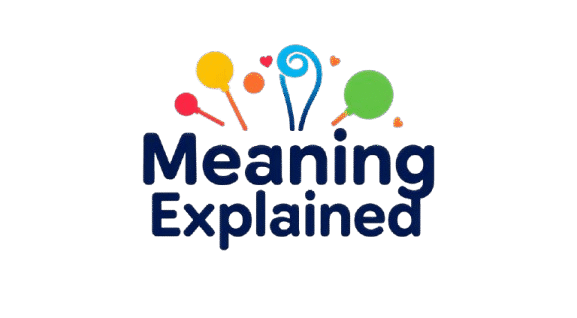The term “unnie” is a common word in Korean that holds a warm and personal meaning. It is used by women to refer to an older sister or an older female friend. More than just a title, it expresses closeness, respect, and affection in everyday conversations.
In Korean culture, age and social relationships are very important, so words like “unnie” help show respect while also building a sense of connection. This term is not limited to family; it can also be used between friends when the speaker feels a bond similar to sisterhood.
Today, the word “unnie” is popular worldwide thanks to K-dramas, K-pop, and social media. Many fans use it when talking about their favorite idols or actresses, showing admiration and love in a friendly way.
What Does “Unnie” Mean?
“Unnie” (언니) is a Korean term used by females to address an older sister or older female friend. It conveys affection, respect, and closeness. Used only by younger females, it’s a casual term for someone older, whether related or not. Males use “noona” (누나) instead. It’s common in Korean culture, especially in K-dramas, K-pop, and social settings, reflecting age-based hierarchy.
The Hiatus Meaning of Unnie
In fandoms or online communities, “unnie” can take on a playful or supportive tone. When someone, like a celebrity or influencer, is on a hiatus (a break), fans may use “unnie” to express warmth or encouragement. This usage isn’t tied to the term’s literal meaning but reflects its affectionate connotation. For example, fans might say, “Our unnie is on hiatus, but we’ll wait for her return!”
How Is “Unnie” Used in Text?

“Unnie” is widely used in texts, social media, and chats to:
- Warm Addressing: Younger females use “Unnie” at the start of texts to warmly address an older female friend, e.g., “Unnie, how are you today?”
- Expressing Gratitude: Common in thank-you messages, like “Thanks so much, Unnie, for the tips!” to show appreciation respectfully.
- Inviting to Events: Used for casual invitations, such as “Unnie, want to join us for coffee this weekend?”
- Sharing Excitement: In enthusiastic texts about shared interests, e.g., “Unnie, you have to see this new K-drama episode!”
- Seeking Advice: Often precedes questions, like “Unnie, what do you think I should do about this?”
- Fandom Support: In online communities or K-pop chats, e.g., “Our Unnie bias slayed that performance!”
- Daily Check-ins: For friendly updates, such as “Unnie, just checking in—hope your day is going well!”
- Affectionate Closers: Ends messages with affection, like “Take care, Unnie! 💕”
- Group Chats: In multi-person texts among females, to specify the older member, e.g., “Unnie said it’s okay to go.”
- Playful Teasing: In close friendships for light banter, e.g., “Unnie, you’re too cool for this drama!”
Polite, Professional, and Casual Alternatives to “Unnie”
Depending on the context, “unnie” can be replaced with polite, professional, or casual alternatives to suit the tone and relationship. In formal settings, polite options include “Senior Sister,” “Eonni-nim” (rarely used), or English terms like “Ms. [Last Name]” or “Ma’am” for respect. Professionally, titles such as “Manager,” “Director,” or phrases like “Dear Senior” or “Respected Colleague” are appropriate for workplaces or emails. For casual scenarios, terms like “Sis,” “Big Sis,” “Girl,” “Bestie,” or gender-neutral “Buddy” and “Pal” convey friendliness and warmth, making them ideal for close friends or informal chats. Choosing the right alternative ensures respectful and effective communication.
Polite Alternatives
In formal or respectful situations, avoid “unnie” and use:
- Senior Sister or Senior Female Colleague: For professional or respectful contexts.
- Eonni-nim (언니님): Adds respect but is rare in casual speech.
- Ms. [Last Name] or Ma’am: Formal English terms for older women.
Professional Alternatives
In workplaces or formal communication, use:
- Titles: Manager, Director, or Ms./Mrs./Miss [Last Name].
- Formal Phrases: “Dear Senior” or “Respected Colleague” for emails or letters.
Casual Alternatives
For informal settings or close relationships, try:
- Sis or Big Sis: Highlights the age difference casually.
- Girl or Bestie: Friendly and informal.
- Buddy or Pal: Gender-neutral, casual options.
Choosing the Best Alternative: Tone and Context
Selecting the right term depends on the relationship and setting:
- Close Friends/Family: “Unnie,” “sis,” or “big sis” are ideal.
- Professional Settings: Use titles like Ms./Mrs. or professional terms.
- Online/Fandoms: “Unnie” is popular but follows age and gender norms.
- Respectful but Informal: Use polite Korean honorifics or English equivalents.
11 Examples of Using “Unnie” and Its Alternatives

- Friendly Text: “Unnie, are you free for the concert?”
- Casual Chat: “Sis, check out this new song!”
- Professional Email: “Dear Ms. Lee, thank you for your feedback.”
- Fandom Support: “Unnie, we’re cheering for you during your hiatus!”
- Close Friends: “Big sis, you always know what to say.”
- Polite Korean: “Eonni-nim, can you guide me?”
- Casual Greeting: “Hey girl, let’s hang out!”
- Supportive Message: “Unnie, take care and come back soon!”
- Formal Setting: “Respected colleague, your input was valuable.”
- Affectionate Text: “Bestie, thanks for always being there!”
- Casual Invite: “Pal, want to join us for movie night?”
Frequently Asked Questions
What does “unnie” mean?
“Unnie” is a Korean term used by females for an older sister or older female friend, showing affection and respect.
Who can use “unnie”?
Only younger females use it for older females. Males use “noona” instead.
Is “unnie” formal or informal?
It’s informal, used in casual or friendly settings, not formal ones.
What’s the male equivalent?
Males use “noona” for older females.
Can “unnie” be used outside the family?
Yes, it’s common for close older female friends or acquaintances.
Final word
The term “unnie” holds a special place in Korean culture, encapsulating respect, affection, and camaraderie among females. Its versatility allows it to be used in casual texts, heartfelt fandom messages, or friendly conversations, making it a cherished way for younger women to connect with older female figures. Whether expressing gratitude, seeking advice, or simply sharing excitement, “unnie” fosters a sense of closeness while honoring age-based hierarchy.
However, using “unnie” appropriately requires understanding its context, as it’s informal and gender-specific. In professional or formal settings, alternatives like titles or respectful phrases are better suited, while casual options like “sis” or “bestie” work for close bonds. By choosing the right term based on tone and relationship, “unnie” and its alternatives strengthen communication across diverse social interactions.

